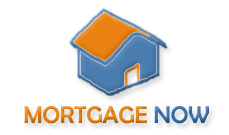Everyone dreams of owning a home. When one becomes a homeowner, there is a huge feeling of pride and accomplishment involved. Many people need a mortgage to help them purchase their home. It’s a good idea to learn all you can about home loans before applying for one, so read on to learn more.
Start preparing for your home mortgage well in advance of applying for it. In order to get approved for a home mortgage, you must have your entire financial situation in order. This ultimately means that you should have savings set aside and you take care of your debts. You may not get a loan if you wait.
If you want to accurately estimate your potential monthly mortgage payment, consider loan pre-approval. Know how much you can afford each month and get an estimate of how much you will be qualified for. You will be able to figure out what your monthly payments will be by doing this.
Do not borrow up to your maximum allowable limit. Your mortgage lender will not consider the extra expenses that may come up in your day-to-day life. Think about your own life, how you spend your money and how much you can really afford and be comfortable.
You may be able to get a new mortgage thanks to the Home Affordable Program, even if your loan is more than the value of your home. A lot of homeowners tried to refinance unsuccessfully until they were introduced to this new program. Check into it to see if it benefits your situation through bettering your credit position and lowering your mortgage payments.
Avoid unnecessary purchases before closing on your mortgage. If a lender notices lots of charging activity before your mortgage is a done deal, they could change their mind about lending to you. All major expenses should be put off until after your mortgage application has been approved.
You will more than likely have to cover a down payment on your mortgage. Most firms ask for a down payment, but you might find some that don’t require it. Ask what the down payment has to be before you send in your application.
If you are struggling to pay your mortgage, get help. There are a lot of credit counselors out there. Make sure you pick a reputable one. There are agencies nationwide that can help. Free counseling is available with HUD approved counselors. Call your local HUD agency to seek assistance.
Try lowering your balance on different accounts instead of having a few accounts with an outstanding balance. Avoid maxing out your credit cards. If you are able to, having a balance below 30 percent is even better.

Balloon mortgages are among the easier ones to get approved for. These loans offer a short term with the balance owed at the end of the loan. This is a risk if rates increase or your finances change in the process.
Once you have your mortgage, start paying a little extra to the principal every month. This helps you pay the mortgage off faster. Paying an extra $100 every month will go towards the principal, and that allows you to pay down the loan much faster.
Learn ways you can avoid being taken in by less-than-honest home mortgage lenders. Bad mortgage practices can end up costing you a lot of money. Avoid smooth-talking lenders. Never sign if the rates appear too high or too low. Lenders that advertise that they will lend to anyone no matter their credit history should be avoided. Finally, you shouldn’t work with lenders that are telling you to lie on your loan application.
Mortgage Broker
If you are having a problem getting a mortgage from a bank or credit union, try working with a mortgage broker. A lot of times, a mortgage broker can find mortgages to fit your situation better than some traditional lenders. Brokers work with a multitude of lenders, and are able to direct you to the optimum deal.
In the six months before applying for a mortgage loan, cut down on your credit card use. Too many credit cards make you seem irresponsible, even if you don’t have too much debt on them. Having a low amount of credit cards can help you get a better interest rate.
Mortgage loans that have variable interest rates are not a good idea for most buyers. When there are economic changes, it can cause a rise in your mortgage monthly payment. This leads to your inability to keep up with your house payments, which you want to avoid at all costs.
You should build up your savings before you go out and apply for a mortgage loan. You are going to need funds available for a down payment, closing costs, inspections, credit reports, appraisals, title searches and even application fees. The bigger the down payment you can make, the more advantageous your mortgage terms will be.
As you can see, there are quite a few things that can help you with your home mortgage. Use what you’ve just learned here today. Then, you’ll be able to make the best decisions for yourself in regards to owning your own home.
